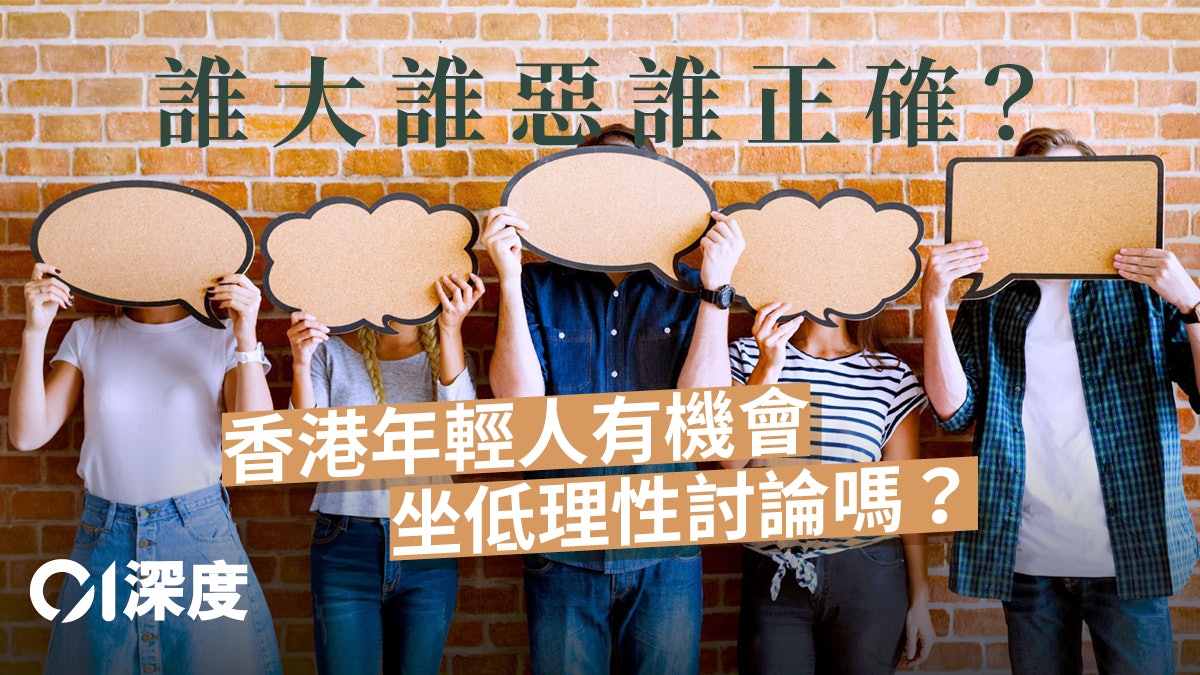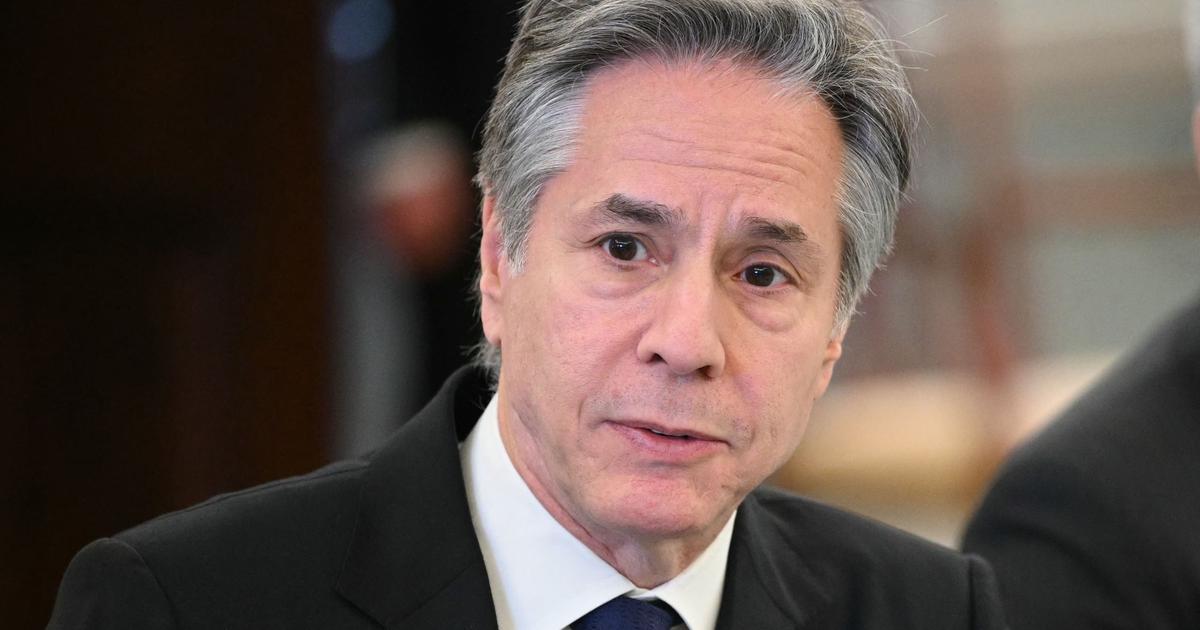"Politics is everyone's business." However, the political atmosphere has become tense after the anti-extradition law turmoil in 2019, and the morale of young people who are the main drivers of the turmoil is low. The prospects for the development of "civil society" are worrying.
In order to explore a more rational and pragmatic "citizen participation" model, the MWYO Youth Office of the think tank and the New Territories North Member of the Legislative Council Zhang Xinyu refer to the concept of "citizen consensus meeting" of "deliberative democracy" (also known as "deliberative democracy"). At the beginning of the month, we co-organized the "MTR Ticket Price Youth" forum, hoping to bring some inspiration and imagination to young people's political participation.
Think tank MWYO Youth Office and Legislative Council New Territories North Member Zhang Xinyu, refer to the concept of "deliberative democracy" and "citizen consensus meeting", and will jointly organize the "MTR fare youth" forum at the beginning of next month, hoping to bring political participation to young people. Come for some inspiration and imagination.
(Photo by Li Shuyao)
Emphasis on Rational Thinking
and Searching for Consensus
Hong Kong people may be unfamiliar with "deliberative democracy", but in fact, it is a new paradigm of democracy that has been highly respected in recent years, also known as "deliberative democracy".
Different from the traditional "representative democracy" which relies on "the minority obeying the majority" to vote, "deliberative democracy" aims to promote rational communication among the public in response to a certain policy or issue. Or mistakes, so as to let go of prejudice and find consensus.
The forum co-organized by MWYO and Zhang Xinyu coincides with the five-year review of the fare adjustment mechanism between the government and MTR, so it is an attempt to gather youth participation on this theme.
The forum mainly recruits 30 young people aged 18 to 40 for a two-day discussion. During the period, they need to carefully read the background information provided by the organizer, understand the ins and outs of the issues and controversies, communicate with relevant experts, and discuss how to optimize MTR fares The adjustment mechanism seeks consensus.
The organizer will count whether the positions of the participants have changed at different times, so as to measure whether sufficient and rational debates can lead to reasonable decisions.
Zhang Xinyu hopes to provide a platform for young people to understand, discuss and analyze public administration through the event, and promises to report the results of youth discussions to the Legislative Council; he does not rule out that similar meetings will continue to be held on other social issues in the future, hoping to use different methods Promoting youth building society.
Whether this "social experiment" can bring more inspiration and imagination to youth's political participation remains to be seen, but many people may question right now—does Hong Kong still need a thriving civil society?
After quite radical and noisy "violent politics", can Hong Kong citizens return to being pragmatic and continue to care about society?
All of this has to start with the "past and present" of "deliberative democracy" and "citizen consensus meetings".
After the 2019 anti-extradition bill turmoil, the political atmosphere has become tense, and the morale of young people who are the main drivers of the turmoil has been low. The prospects for the development of "civil society" are worrying.
(profile picture)
Origin Ancient Greece Athens
broke the "majority vote" monopoly
"Deliberative democracy" involves the two elements of "citizen deliberation" and "democratic decision-making". It can be traced back to ancient Athens in the fifth century BC.
At that time, Solon, the consul of the ancient Greek city-state Athens, redesigned the politics, law, economy, and citizen hierarchy of the city-state in order to break the monopoly of the hereditary aristocrats, and allowed citizens with political rights to enter the "Citizens Assembly" (Ecclesia) to discuss Major national issues such as war, law making, food supply, senior official elections, court of final appeal proceedings, etc., are decided by at least 6,000 votes.
The "Parliament of Four Hundred" was set up under the "Citizens' Assembly" as a permanent body, and later reorganized into a "Meeting of Five Hundred". Meetings were held every day in the great hall of the Ancient Agora in the city of Athens. Responsible for arranging the citizen assembly agenda and accepting citizen proposals.
Although not all city-state residents enjoyed "citizenship" qualifications, for example, women and slaves were excluded, this model finally opened a precedent for citizens to participate in public administration, and encouraged citizens to speak freely, engage in rational debate, and participate in decision-making in an orderly manner.
Later, after development and evolution, under the modernization, different countries and regions have derived various democratic systems such as "Representative democracy" (Representative democracy) and "Direct democracy" (Direct democracy) in response to the national conditions and soils of each country, allowing citizens to have different degrees of freedom. Participate in national decision-making and follow the majority rule model.
Until the early 1970s, political philosophers began to criticize traditional democratic theories. For example, "representatives" may ignore public interests due to ideology or pressure from financial groups, while "majority votes" tend to ignore the voices and interests of minority groups, and even "majority votes" may appear. violence” (Tyranny of the majority).
The concept of "deliberative democracy" came into being as the times require. It was first proposed in 1980 by Joseph M. Bessette, a political scientist at the University of Chicago, in his book "Deliberative Democracy: Majority Principles of Republican Government". Thinking of "deliberation" as discussing the merits and values of public policy, which is at the heart of democratic politics, helps show that some values are higher than others.
This is the Ancient Agora in Athens. Agora means market in English, which means "market" or "bazaar".
In ancient Greece and Rome, it was not only a shopping place, but also a political, economic and cultural center.
(online picture)
Interaction, openness and inclusiveness
of public interests are the most important
However, "deliberation" and "negotiation" do not speak for themselves; on the contrary, participants are placed with higher expectations.
It is generally believed that "deliberative democracy" puts more emphasis on rational communication and citizen participation, and takes public interest as a common value appeal. It can grant legitimacy to legislation and decision-making on the basis of consensus through equal and open consultation.
Famous American political philosophers Amy Gutmann and Dennis Thompson pointed out that "deliberative democracy" needs to reach a consensus driven by rationality and find reasons that are more persuasive to the whole, so it has "reciprocal" (Reciprocal) ), "Accessible" and "Provisional".
"Mutuality" means that members should let go of their prejudices and listen to others' ideas, rather than just expressing their own opinions.
Since each person's birth background, cultural education, and lifestyle are very different, each other's values, ways of speaking, and ways of understanding things are also different. The goal of "deliberative democracy" is to gather the opinions of all parties through open discussions. Therefore, it is necessary to put aside prejudice and understand the views of the other side in order to find consensus from differences.
"Openness" means that the information and reasons put forward by members must be open and transparent, and can be freely viewed by the public who did not participate in the meeting. This will help drive members to think carefully during discussions and reduce blind or hasty judgments.
"Inclusiveness" refers to the inclusion of different viewpoints and interests in the society as much as possible in the deliberation process, because not all citizens personally participate in policy deliberations, and not every class is properly represented, while "inclusiveness" can avoid the existing The impact of the division of power structure on the outcome of deliberations.
As the American political theorist Iris Marion Young argued, the deliberative process is justified only when all interests, opinions, and perspectives involved in public policy are given an equal opportunity to be expressed.
Therefore, "deliberative democracy" must provide more social support and political equality measures for groups that have been neglected or oppressed for a long time, and avoid allowing those with more power and wealth to dominate the discussion process and crowd out weaker voices.
During the public consultation on universal retirement protection in 2016, several supporters of universal retirement protection were dissatisfied with the government's direction and asked then Chief Secretary for Administration Carrie Lam Cheng Yuet-ngor for money.
(Photo by Jiang Zhiqian)
"Fake Consulting" Doesn't Help Decision
-Making and Destroys Governance Prestige
In the 1980s when "deliberative democracy" began to germinate, Hong Kong also embarked on a process of "rapid democratization", but the core was only to increase the "quantity" of democracy, that is, how to build a political system that distributes political power through elections. Failure to improve the "quality" of democracy has resulted in a long-term deadlock in the parliament of binary opposition and mutual intransigence.
Today, the "deliberative democracy" based on the premise of "reaching a consensus" is undoubtedly worth learning from Hong Kong, which has experienced several turmoil.
However, as mentioned above, in order to effectively practice "deliberative democracy", in addition to requiring participants to maintain objectivity and rationality, openness, acceptance and tolerance of those in power are indispensable. It is necessary to actively provide a platform and encourage citizens to participate in discussions, and more importantly, to actively Only by absorbing suggestions that are beneficial to the overall public interest can a more convincing governance prestige be established with the recognition of the public.
In another sharp contrast to "deliberative democracy" is "consultation politics" which is accused of "acting".
Lu Tai-lok, Chair Professor of Hong Kong Social Studies at the Education University, once criticized that "consultation politics" has never been a channel for building political consensus. Political consultation provides the basis for rationalization.
In fact, from the era of British Hong Kong to the present, the authorities have been criticized not only for their failure to provide comprehensive information to the public, but also for their unwillingness to follow public opinion, whether it is discussions on minimum wage legislation, consultations on universal retirement protection, or land supply consultations commonly known as the "Land Debate". Decisions are enforced by consensus, and the public is always disappointed.









